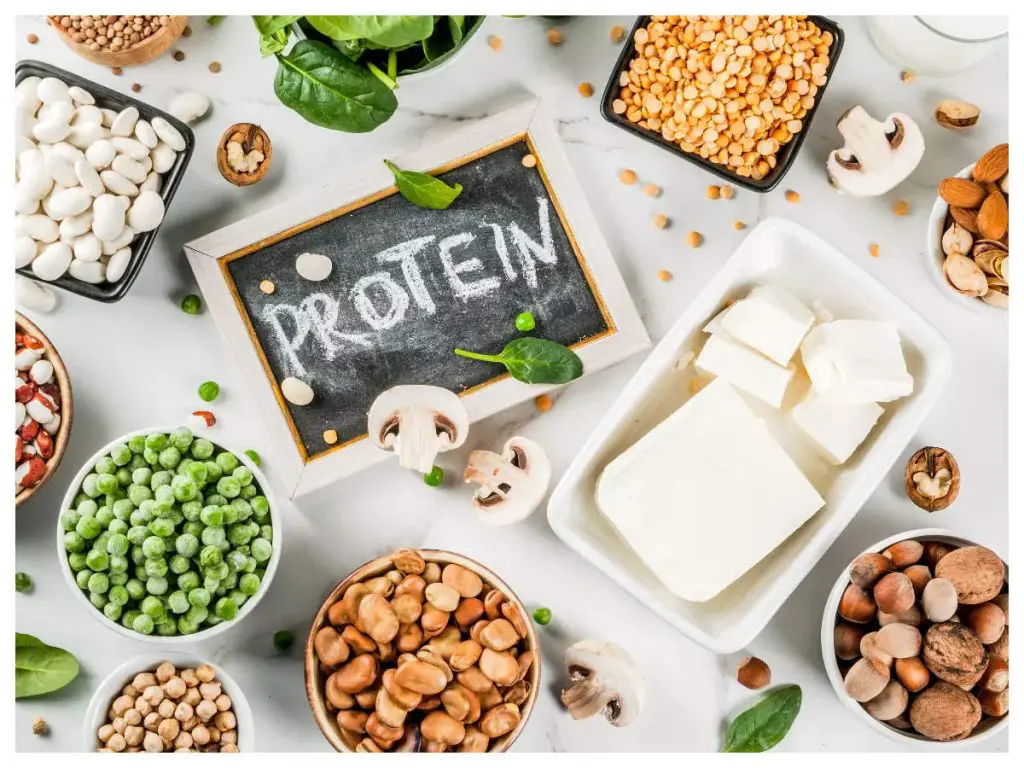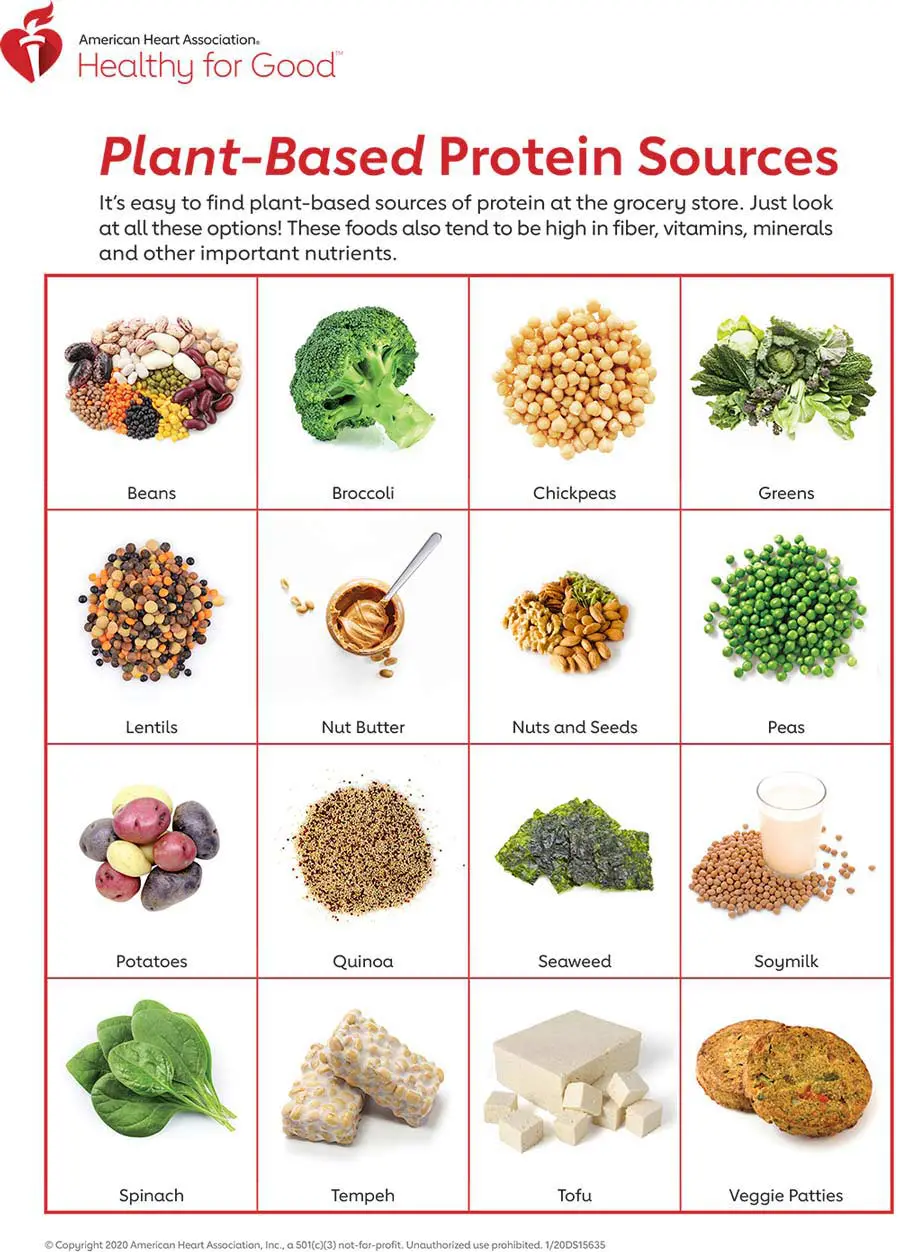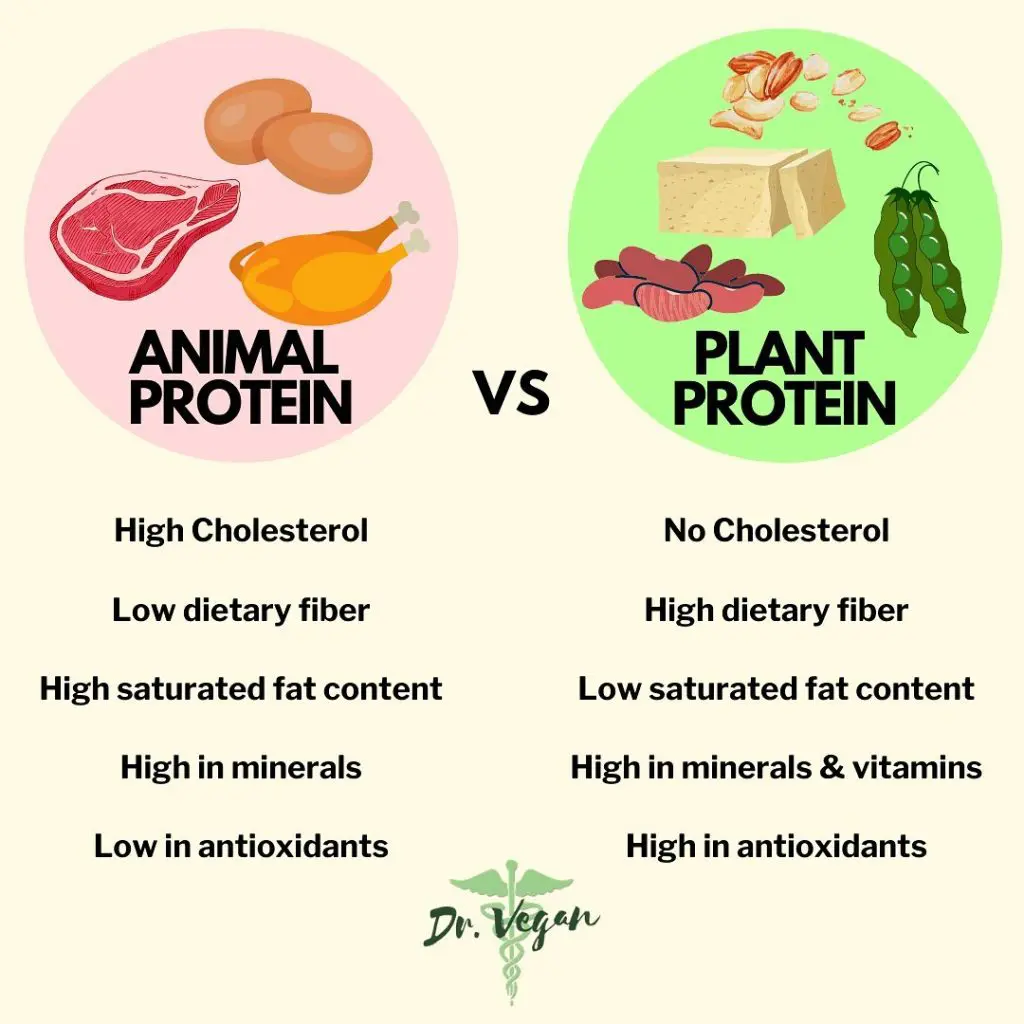Растителните източници на протеини набират популярност през последните години, тъй като все повече хора преминават към растителна диета по здравословни, екологични и етични причини. Тези източници на протеини предлагат широка гама от хранителни вещества и ползи, които могат да допринесат за цялостното здраве и балансирана диета. В тази публикация ще проучим разнообразието и хранителната стойност на източниците на растителни протеини, подчертавайки техните предимства, видове, съвети за готвене, идеи за приготвяне на храна и сравнение с източници на протеини от животински произход. Независимо дали сте отдаден ядец на растителна основа или просто искате да включите повече растителни протеини в диетата си, това изчерпателно ръководство ще ви помогне да направите информиран избор за по-здравословен начин на живот.

Ползи от източници на растителен протеин
Растителните източници на протеини предлагат набор от ползи за здравето, които ги правят ценна добавка към балансирана диета:
- Фибри: Растителните протеини често са с високо съдържание на фибри, които могат да подпомогнат храносмилането и да насърчат здравословен чревен микробиом.
- Витамини и минерали: Тези източници са богати на основни витамини и минерали, като желязо, калций и магнезий, за поддържане на цялостното здраве.
- Намалено съдържание на наситени мазнини: В сравнение с протеините на животинска основа, опциите на растителна основа обикновено са с по-ниско съдържание на наситени мазнини, което може да помогне за намаляване на риска от сърдечни заболявания.
- Храносмилане: Някои хора намират протеините на растителна основа за по-лесни за смилане, което ги прави добър избор за тези с чувствителна храносмилателна система.
- Контрол на теглото: Включването на растителни протеини във вашата диета може да помогне за регулиране на теглото и да подпомогне цялостното здраве.
- Устойчивост: Много растителни източници на протеини са по-щадящи околната среда и по-устойчиви в сравнение с животинските варианти, което ги прави по-екологичен избор.

Видове източници на растителен протеин, които да включите във вашата диета
Включете разнообразие от опции като бобови растения, ядки, семена, пълнозърнести храни и соеви продукти.
- Киноа
- Леща за готвене
- Черен боб
- Бадеми
- Тофу

Включването на различни видове растителни протеини гарантира, че получавате широка гама от незаменими аминокиселини.
Експериментирайте с темпе, семена от чиа, едамаме и конопени семена, за да добавите разнообразие към вашата диета.
Обърнете внимание на размера на порциите и балансирайте приема на растителни протеини с други хранителни вещества за добре закръглена диета.
Готварски съвети за максимизиране на хранителната стойност на растителните протеини
- Изберете методи на готвене като задушаване, печене или сотиране вместо дълбоко пържене за по-здравословни ястия на растителна основа.
- Комбинирайте протеини на растителна основа с храни, богати на витамин С, за да подобрите усвояването на желязо и други хранителни вещества.
- Мариноването на тофу или темпе преди готвене може да добави вкус и да подобри текстурата.
- Включете билки, подправки и цитрусови аромати, за да подобрите вкуса на ястията с растителни протеини.
- Когато печете с растителни протеини, обмислете използването на ябълково пюре или пюре от банани като подходящ за вегани заместител на яйцата.
Включване на растителни източници на протеини във вашата рутинна подготовка за хранене
Когато става въпрос за приготвяне на храна, включването на растителни източници на протеин може да добави разнообразие и хранителност към вашата диета. Ето няколко съвета, които ще ви помогнат да включите растителни протеини в рутината си за приготвяне на храна:
- Пригответе съставки като боб, леща и киноа предварително за бързи и лесни ястия през цялата седмица.
- Гответе на партиди тофу или темпе, мариновано в различни сосове, за да добавите разнообразие към вашите ястия.
- Създавайте разнообразни сосове и дресинги, които могат да се използват с различни протеини на растителна основа.
- Използвайте уред за бавно готвене или тенджера за бързо приготвяне, за да приготвите големи партиди протеини на растителна основа за удобно приготвяне на храна.
- Опаковайте преносими закуски като печен нахут или микс с ядки и семена за богати на протеини опции в движение.
Сравнение на растителни източници на протеини с животински източници на протеини
Растителните протеини обикновено са с по-ниско съдържание на наситени мазнини и холестерол в сравнение с животинските протеини. Докато животинските продукти осигуряват пълноценни протеини, комбинирането на различни растителни източници също може да отговори на нуждите от протеини. Растителните протеини предлагат устойчива и без жестокост алтернатива на животинските продукти. Изборът на растителни източници може да намали риска от определени здравословни състояния, свързани с високата консумация на животински продукти. Както растителните, така и животинските протеини имат уникални хранителни профили, така че е полезно да включите и двете в една балансирана диета.
















































